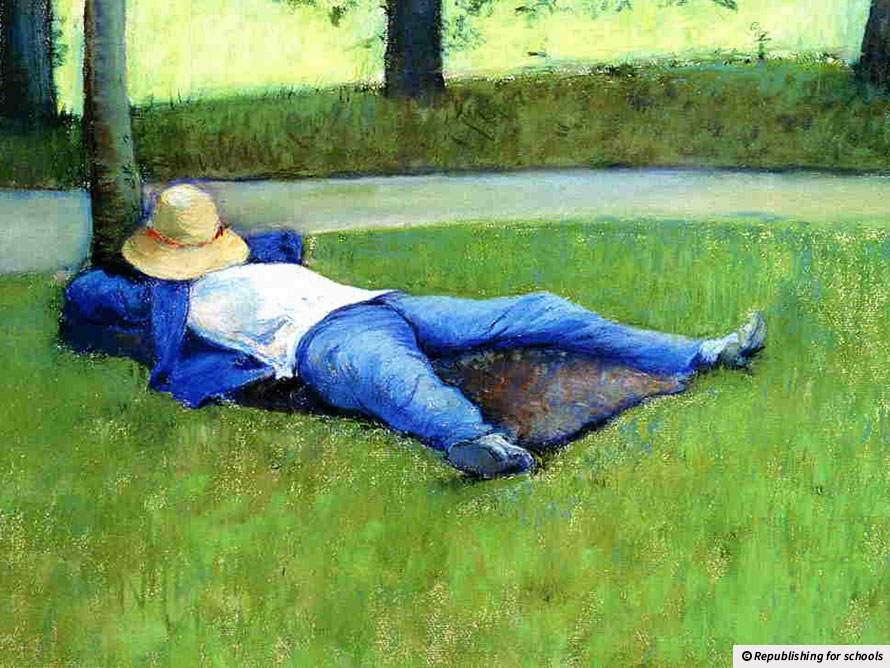Is absolute idleness a good idea? This month the David Lloyd fitness chain launched a class in niksen, a Dutch trend of purposeless restfulness that is sweeping the world.
Gym chain launches classes in doing nothing
 Switching off: Gustave Caillebotte's The Nap shows bourgeois leisure in the 19th Century.
Switching off: Gustave Caillebotte's The Nap shows bourgeois leisure in the 19th Century. Glossary
Borneo - The third-largest island in the world, known for its biodiversity.
Industrial Revolution - A period of sudden, rapid industrialisation that transforms a country from an agricultural to an industrial economy.
Middle Ages - The Middle Ages was the period in European history that came between ancient and modern times. It lasted from about 500 to about 1500.
Peasants - A historical term often used to describe poorer people who worked in farming.
Hunter-gatherers - Humans who lived an ancient way of life in which they foraged for food and occasionally hunted, but did not farm.
Old Testament - The first part of the Christian Bible, and is mainly based on the 24 books of the Hebrew Bible (Tanakh).
Toil - Work very hard.
Karl Marx - A 19th-Century German economist and philosopher who argued that capitalism was doomed to collapse.
